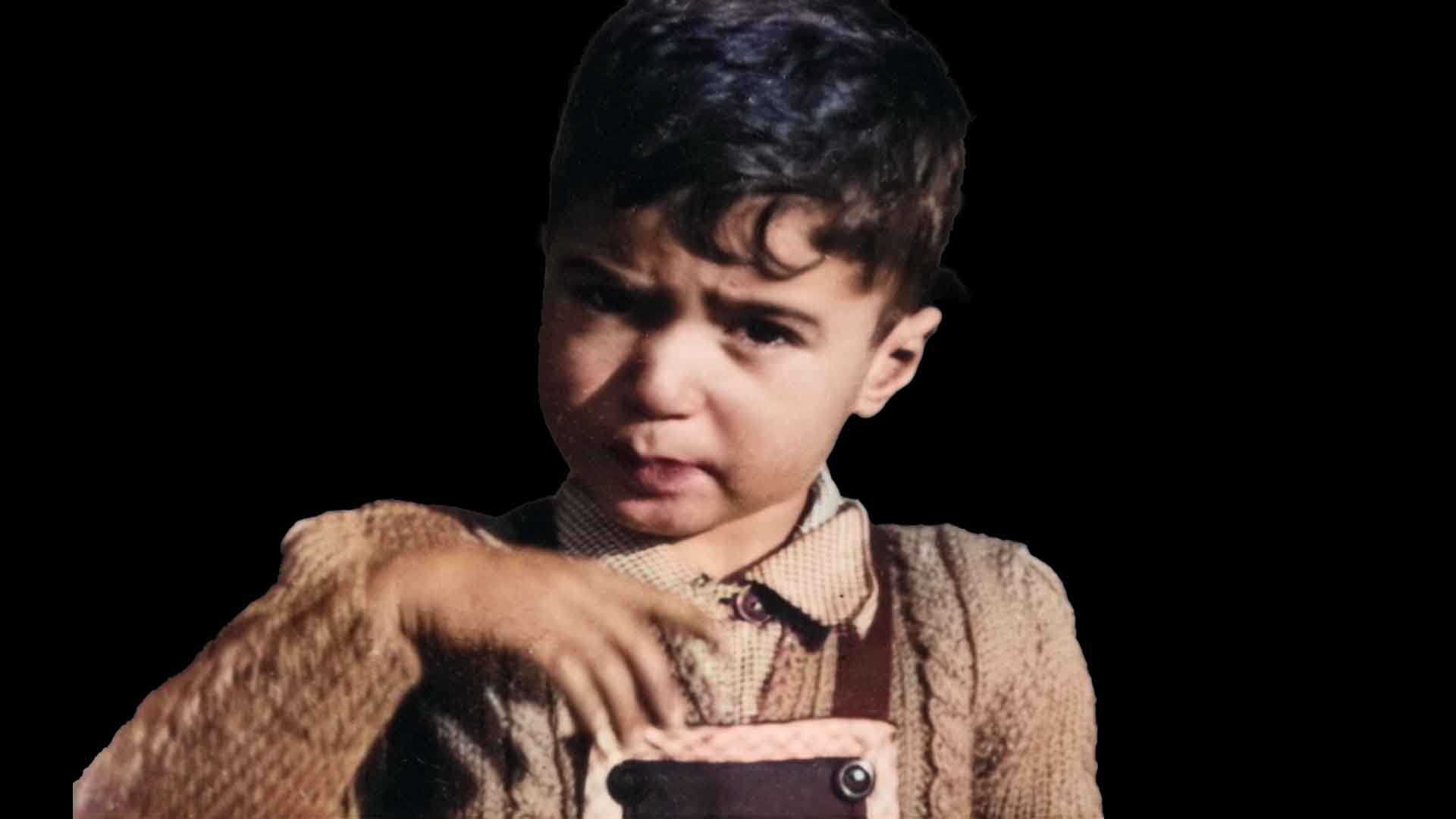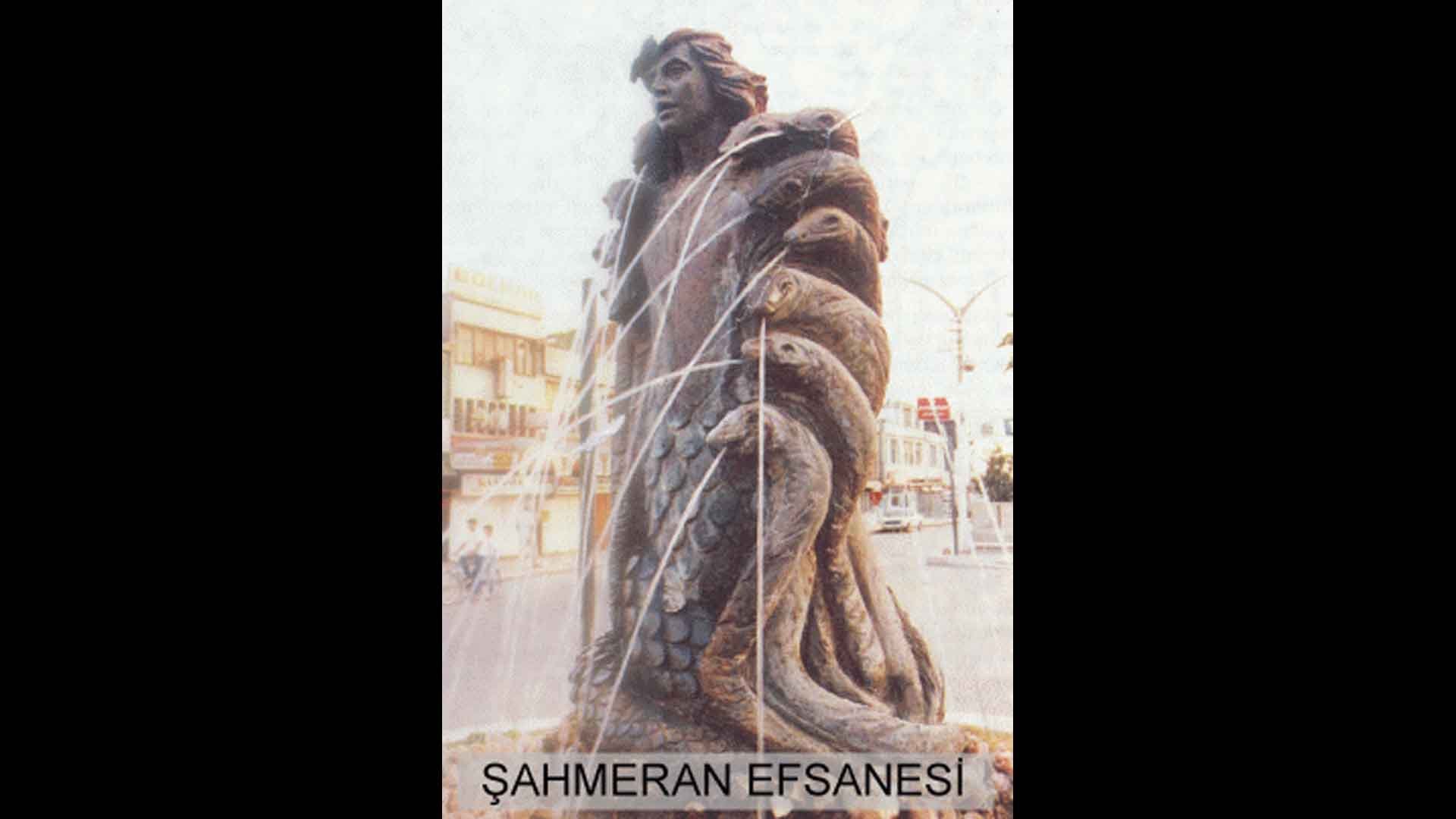My Rabbi reads nothing to do with Holocaust, he does not read or visit
concentration camps, citing the Tiferes Shlomo
where Moshe Rabbeinu averts his gaze from the burning bush
realizing he was being shown in the fire that was not consumed
the future divine judgement in history,
including the four exiles, the last being Edom-Christianity.
He did not want to harbor resentment to the Almighty
and question His justice,
while being on shlichut, His mission.
EXODUS 3
ב וַיֵּרָא מַלְאַ יְהוָה אֵלָיו, בְּלַבַּת-אֵשׁ--מִתּוֹ הַסְּנֶה; וַיַּרְא, וְהִנֵּה הַסְּנֶה בֹּעֵר בָּאֵשׁ, וְהַסְּנֶה, אֵינֶנּוּ אֻכָּל.
2 And the angel of the LORD appeared unto him in a flame of fire out of the midst of a bush; and he looked, and, behold, the bush burned with fire, and the bush was not consumed.
ג וַיֹּאמֶר מֹשֶׁה--אָסֻרָה-נָּא וְאֶרְאֶה, אֶת-הַמַּרְאֶה הַגָּדֹל הַזֶּה: מַדּוּעַ, לֹא-יִבְעַר הַסְּנֶה.
3 And Moses said: 'I will turn aside now, and see this great sight, why the bush is not burnt.'
ד וַיַּרְא יְהוָה, כִּי סָר לִרְאוֹת; וַיִּקְרָא אֵלָיו אֱלֹהִים מִתּוֹ הַסְּנֶה, וַיֹּאמֶר מֹשֶׁה מֹשֶׁה--וַיֹּאמֶר הִנֵּנִי.
4 And when the LORD saw that he turned aside to see, God called unto him out of the midst of the bush, and said: 'Moses, Moses.' And he said: 'Here am I.'
ה וַיֹּאמֶר, אַל-תִּקְרַב הֲלֹם; שַׁל-נְעָלֶי ,ָ מֵעַל רַגְלֶי -ָ-כִּי הַמָּקוֹם אֲשֶׁר אַתָּה עוֹמֵד עָלָיו,
אַדְמַת-קֹדֶשׁ הוּא.
5 And He said: 'Draw not nigh hither; put off thy shoes from off thy feet, for the place whereon thou standest is holy ground.'
ו וַיֹּאמֶר, אָנֹכִי אֱלֹהֵי אָבִי ,ָ אֱלֹהֵי אַבְרָהָם אֱלֹהֵי יִצְחָק, וֵאלֹהֵי יַעֲקֹב; וַיַּסְתֵּר מֹשֶׁה, פָּנָיו, כִּי יָרֵא, מֵהַבִּיט אֶל-הָאֱלֹהִים.
6 Moreover He said: 'I am the God of thy father, the God of Abraham, the God of Isaac, and the God of Jacob.' And Moses hid his face; for he was afraid to look upon God.
In this flame Moses sees the crematoria flames rising
being fed and not being quenched
now he understands why the fire is not being consumed
it is being fed with millions of Jewish bodies
Jewish children.
So he turns from what was earlier his intellectual curiosity
a scientific puzzle, away
in horror.
Cobblestones,
everywhere in the old City across the Charles River bridge
Nazi hobnailed boots must have worn well here,
I hear them clicking their heels in obedience,
the sounds must have instilled fear,
O how they hated “white Jews” the intelligenstia
cultured, assimilated, cafe-haus
coffee-klatch-drinking Jews,
holding those newspapers with the wooden rod through the spine,
Prague Jews, (Kafka, Brod et al) who changed the way we looked at the 20th century
in art, kultur and science.
Only,
drowning as I am,
in tears,
do I have
the Chutzpah
the nerve!
to state:
“Do not go gently into the dark,
rage, rage against the darkness of the night
rage rage...”
like Dylan Thomas, in “In Country Sleep”.
the Chutzpah!
which country? Wales? or Prague.
In tears alone
I find the courage
or is it the wine?
In theses tears
I find the words
to express
what cannot be expressed in words.
For I cannot take my gaze away
I remain transfixed
in horror
at the smoldering bush of Prague
by their absence in the bustling streets
and the Jewish Quarter.
The Silence,
the words written in silence
on a parchment made of human skin
the Blasphemy...
written in German
in Holiness...
felt in the belly only of the girl with green eyes,
the question that remains some 70 years
later....
“Where were You?”
in tears,
drowning the rage
melting,
the heart of stone that can no longer feel
a sea of salt,
from eyes that can no longer see with clarity
what Chutzpah!
After 2000 years of piety
and non-questioning...
“mesiras nefesh”
in the halls of the academy
in Volozhyn and Mir-
Where do I get off
even asking this question?
Was I there?
Did I suffer?
The body writhing in pain,
they knew how to administer pain
slowly with the whip
the hands tied behind the back
suspended in air
weightless
dislocated shoulders
horror after horror
all planned,
As I read Arnost Lustig,
the “The Girl with Lovely Green Eyes”
her body,
her belly,
the Jewish Body,
the body of Christ finally atoned for,
raped by the Waffen SS.
the landscape of Jewish flesh
trodden and emasculated by Nazi Herr Prof. Doktor
or “Wartime Lies” by Louis Begley
the screenplay for “Rabbi” Kubrik’s
masterpiece...Aryan Papiern,
never finished,
due to Schindler’s List- Spielberg
and Hollywood, the new power broker
for the money-making Holocaust industry.
like the local Prague Jewish community
screwing the tourists for every euro.
Reading these two novels intensifies in me, the horror.
The grotesque yet ongoing fascination I have with the
Charles River Bridge Crucifix
adorned with kadosh, kadosh, kadosh,
adds to the theatre of the absurd
as Christians pass by for photo ops.
Her body as locus of betrayal in order to survive
in both novels
the landscape of memory is the belly
the key to survival is located there.
Yet Here I am...
today...
in Prague...
where 250,000 yidden
were transported...
to their respiratory distress
using Zyklon B...
into vapor...via Terezin the perfect
model camp for the outside world press,
the smoke and soot
from crematoria,
of Jewish bones,
raining down for days after...
inhaling Jewish souls...
yet life goes on...
tourists flock...
Israelis wonder...
what took Place?
empty synagogues...
full cemeteries...
the Maharal!
the Golem!
the cyber space Golem
the first cyborg!
the first bionic man!
“Kroner! we will accept Euro!”
money! any denomination!
540 Kroner. either way.
For all cemeteries and museums
“sorry one visit to this or that saint is not sufficient”.
A local bouncer comes close, threateningly near,
“you must buy for all or nothing”.
the fascist/communist clerk bellows,
enriching the coffers of the new Mafia,
what a scam!
To see the Maharal, the Node Bi’Yehedu the Kli Yakar
even Franz Kafka!
costs you money!
the dead demand!
or at least the living parasites
to fill the coffers of these new elites.
Scamming tourists, the new industry.
In this sea of tears I find my voice.
Ribbono Shel Olam!
Gevalt!
what happened?
where were You?
why were You silent?
I cannot,
I will not give up
on You!!!
Reb Shlomo
I need you so badly right now!
yet I also need to know!
what cannot be known!
what cannot be expressed!
what cannot be told!
I am drowning!
Help me Lord!
make sense of 900 years of master and slave,
the intimate relationship between the Christian and Jew
powerful and powerless
Bohemian Prince and Jew merchant funding his wars,
surely they are all Your children too?
both Saint and Zaddik claiming the Truth!
both dying for Your truth?
and these NAZIS!
What are we going to do with them in history?
where is history?
they are not even on the radar screen today
in Prague circa 2013!
nowhere to be seen,
yet their haunting memory,
paves the streets,
the cobblestones
the memory of hobnailed jackboots
Nazi officers,
obersturmfuhrers,
Wehrmacht,
Waffen SS,
haunting nonetheless
the tourist shops,
selling cut-glass crystal.
Here,
In Prague,
where Your prophet
Kafka,
predicted this horrific world
ahead of his time
We come to venerate him
Rabbi Kafka?- no, a post-modern Rebbe
like Reb Shlomo
and his predictions.
in Krakow 1968.
Yet even here I see Dora
his last beloved
and am intrigued by her purity
her simplicity and commitment,
to the death.
like “skinny” with the lovely green eyes
Lustig’s muse...
After all Reb Kafka died in her arms.
Her belly warmed him to the end
as he was consumed by his own flesh.
Dora!
cries out to me from her grave in a London cemetery
East Ham is it?
The United Synagogue cemetry?
post bellum 1953.
she, who cradled Kafka
she, whose father
a Hassid from Belz,
had asked the Rebbe (the Sar-Shalom, no-one less!) permission
refused forthwith,
for the match,
yet Dora refused even the Rebbe,
knowing in her belly, like skinny,
the god even he had no access to,
the Nazi beckoning the girl with the lovely green eyes
even then, in her belly,
she feels
some truth her lover had revealed,
a cabbalistic code for the 20th century,
where god becomes irrelevant,
cradling Kafka two years later on his deathbed.
Between the Node BiYehuda
the Maharal
and Kafka,
the Nazi boot,
the girl with the lovely green eyes,
I am strung,,,
like a roasted BBQ, like Maciek,
not knowing which way to turn,
but realizing that the skewer will turn on its own accord.
Torn between Nazi worlds and modern consumer gods.
There is a conference on David Ganz (1541-1613) secretary to Rabbi Loew
as if by coincidence, when we arrive,
as if,
as if the world depended upon Jewish
academic scholars who will debate,
as to the reception of Copernicus,Tycho Brahe and Kepler
in the Rabbinic world of modernity
and others like the doctor Tuvia (ha-Rofeh)
the Gra,
the Haskallah.
as if...such debates will influence the cultural
wars of the charedim and Christian
fundamentalists.
Yet here in the heart
in Prague
which feels the streets
and cobblestones
jackboots
hobnailed boots
cobbles
flowing red
Jewish blood once again...
Unconscious Jewish blood,
flowing
in numbers never even thought of by the church!
where now?
who now?
by the Vltava river, die Moldau
(Smetana rings in my ears with the Hatikvah!)
who even needs their gods?
who even needs to pray?
to recite Tehillim? Psalms-Das Neimandsrose.
Help!
help me in this hopeless
hapless stupor
the gaze is hypnotic,
Lord help me Not look
not stare
not behold this burning bush
the chutzpah
shah! Julian!
be silent!
It’s time to daven minchah.



















